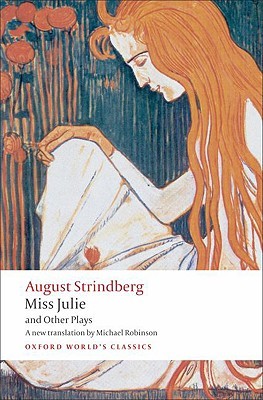
Sometimes I’m seized by a passionate desire to say exactly what I’m thinking; but I know that if people were absolutely frank the world would come to an end.
The Ghost Sonata
I watched a good video by booktuber R.C. Waldun today. In it, he talked about the need for academics and thinkers to get out in the world and actually live. He described writing as the crossover between living and reading (and, implied, grappling with ideas). This made so much sense to me. I was left motivated to live more, outside of the daily routine of work, and to write more.
That said… As I try to collect my thoughts on August Strindberg (1849–1912), I realize the things which challenged (or even offended) me in his writing are the very things that make his writing an emblem of his life—the crossover between his ideas and his personal identity. This is not unique to Strindberg, of course. From this, I have to ask—how does one “review” a piece of someone’s life?

Strindberg is considered to be one of the Sweden’s greatest authors. He wrote novels, plays, poems, and nonfiction, and even painted in an impressionist sort of style. The five plays in the volume range from a tentative naturalism (The Father, Miss Julie, The Dance of Death) to a fully-developed surrealism (A Dream Play, The Ghost Sonata) which for its time must have been avant garde.
Thematically, this selection of plays is somewhat repetitive and occasionally cringe-worthy. Topics such as marital discord, infidelity, illegitimacy, and insanity feature heavily, with some relief in the last two plays (though still present). Strindberg’s many marriages and divorces likely inspired some of this material. Father’s rights, as alluded to in The Father, is certainly an important subject, but Strindberg would be a misplaced hero of the cause, bringing with him some unsavory baggage.
His preface to Miss Julie, for instance, lambasts the “man-hating half-woman” as a “stunted form of human being” who can never hope to become man’s equal, regardless of education, voting rights, or anything else (p. 60). It’s unclear whether he extends this tirade to all women or only those who wish to be equal with men. Unclear, because his both female characters in The Father and Miss Julie, who protest their lot in life, are very unlikeable and/or outright villainous. This is followed by a gruesome ending in Miss Julie, which he seems to have thought was fitting.
The Dance of Death was the middle play in every sense of the word. On the surface, it’s a rehash of the marital turmoil of The Father, but here we get a more nuanced view of the wife’s perspective. She is scarcely a more likeable character, but the husband interestingly is here the villain, as a control freak and generally unpleasant guy. There were some interesting allusions to the role of children in a struggling marriage, and also the role of a man in his family vs. in the world. This could have been more fully developed, perhaps by another author…
Things improve further with A Dream Play and The Ghost Sonata. Strindberg wrote these after a bit of a hiatus, and it shows. The characters are more dimensional, the themes bigger, and the style experimental. References to religion are prominent; though he remains apparently critical, he gives the topic more serious treatement. A Dream Play in particular reflects on human suffering and existential questioning.
The Ghost Sonata was my personal favorite of the whole book. With its eerie, haunted-house vibe and creepy ensemble, I was reminded of Nathaniel Hawthorne’s The House of the Seven Gables and also E.T.A. Hoffmann’s “The Golden Pot.” We are told the play ends with The Isle of the Dead by Arnold Böcklin. In my mind, Strindberg’s writing is strongest when he writes symbolism, not realism.

Coming back to my original question, I think this book illustrates why “writing what you know” (or believe) is both risky yet worthwhile, even if people don’t like what you write. While I don’t know at this point if Strindberg changed much as a person, it’s clear his art changed. Perhaps he needed to get the earlier plays “out of his system” in order to arrive at something greater. There is also something you can take from each of these plays, even if it is simply the raw emotion of The Father, which conveys far more of a message than the mere plot points.
Of the misogyny (in the nonfiction Preface and certain character portrayals), my thought is: I’m glad it’s published because it shows that these opinions actually exist(ed) and are not merely inventions on the part of the reader. I take a pretty libertarian view of these things… if people want to say things that make themselves unpleasant, let them! Better to have it out in the light than hidden and pent-up.
Review-wise, I have tried to be objective in showing what the book contains, good and bad. I try to do this for all my reviews. And at the end of the day, it’s still fiction unless otherwise noted. With that understanding, I think one can (and should) critique all aspects of a book, even if it is inspired heavily by real life. In an ideal world, I’d like to see writers writing honestly and readers reviewing honestly. One without the other causes an imbalance.
I can’t say I love Strindberg, but I was left curious to read more of his work, maybe not right away but in the future.

Leave a comment